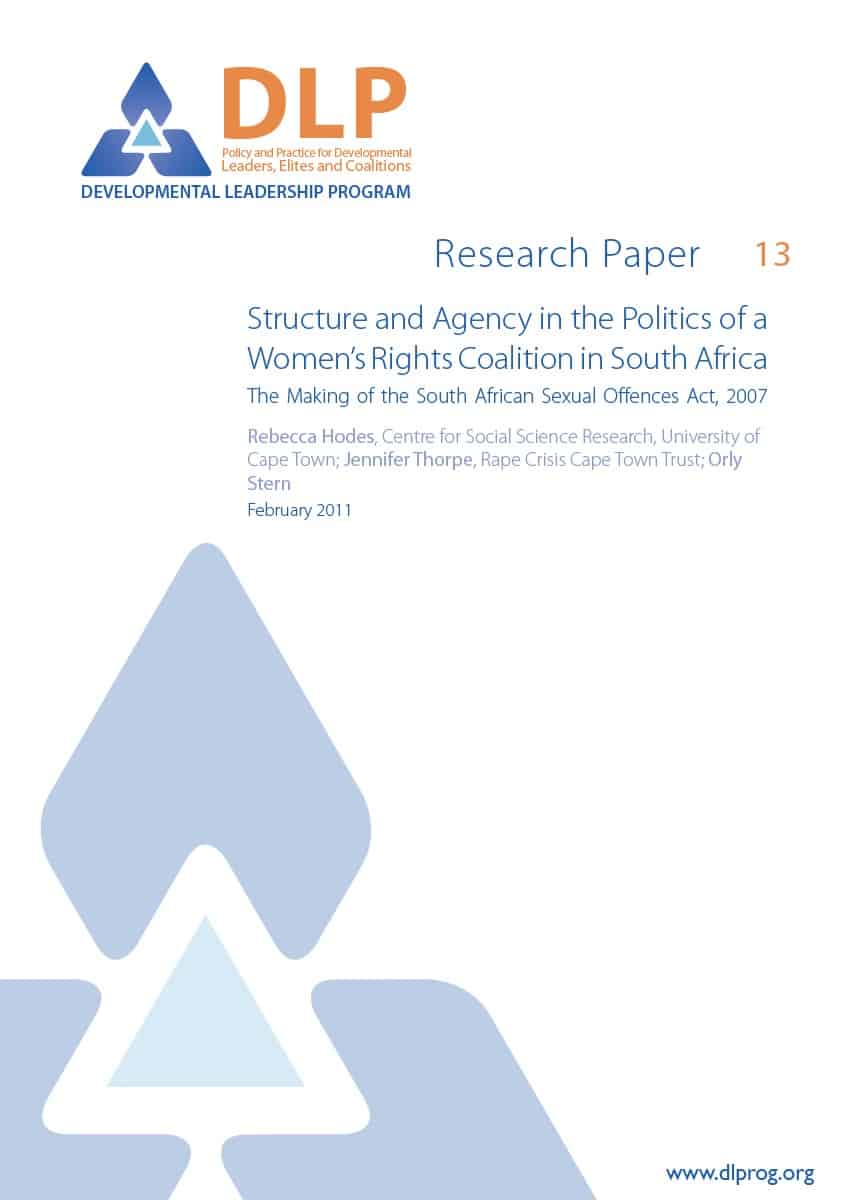How do women’s rights groups campaign for vital institutional reform of archaic laws on sexual violence in new democracies? How can they best ‘work politically’ to achieve positive outcomes? What lessons are there for donors and supporters?
The National Working Group on Sexual Offences (NWGSO), established to influence the progressive reform of national rape laws, became the largest civil society coalition to have collaborated on law reform in South Africa. It emerged at a time of profound change to South Africa’s political settlement, and was a product of the new political processes that unfolded in the early years of the democratic transition.
Key points:
This research paper uses findings from a study of this women’s coalition to demonstrate how civil society coalitions may draw on and expand their elite networks and exploit political and institutional arrangements to build developmental partnerships.
It examines the strategies used by the coalition to broaden its support base and to achieve its objectives. It also analyses the factors influencing those areas where the coalition was less successful.
In analysing the successes and setbacks of this groundbreaking coalition, this study offers lessons for civil society leaders, policy makers and developmental partners on how best to support developmental coalitions and strengthen their capacity to promote long-term, sustainable social change.









